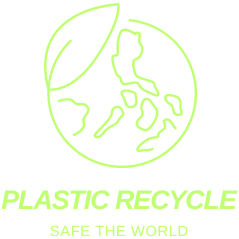
Canada’s progress towards its objective of zero plastic
waste by 2030 continues with the government’s publication of
its Proposed Roadmap to Extend the Life of Plastics in
End-of-Use Electronics (the “Proposed
Roadmap“) and the introduction of a new National Standard of Canada, CSA R117:24: Plastics
Recycling: Definitions, measuring, and reporting
(“CSA Plastics Standard“) by CSA Group,
the not-for-profit standards organization that is a leader in the
advancement of standards in the public and private sectors. This
bulletin provides an overview of these two recent developments
impacting the regulation of plastics.
This is the latest bulletin in our “Plan for the Ban”
series regarding prohibitions and increased regulation of
single-use and other plastic products across Canada.
Consultation on Canada’s Roadmap for Extending the Life of
Plastics in Electronics
The Government of Canada is seeking input on its Proposed Roadmap to
extend the life of plastics in end-of-use electronics. This
initiative is part of Canada’s zero plastic waste agenda and
aims to promote the repair and reuse of electronic products to
reduce plastic waste.
The Proposed Roadmap focuses on three priority action areas:
data collection, collaboration, and innovation. The data collection
area aims to close knowledge gaps and establish a baseline for
measuring progress in the electronics sector. The government plans
to map the flow of electronics undergoing life extension processes
in Canada such as repair, reuse, remanufacture or refurbishment.
This will involve quantifying the plastic content of various key
products, notably through the Federal Plastics Registry, and using
a lifecycle approach to better understand the environmental
benefits of product life extension. For more information on
Canada’s Federal Plastics Registry, read our bulletin here.
Regarding collaboration, the goal is to develop best practices
and set targets for the repair, reuse, remanufacture and
refurbishment of electronic products through engagement with
industry stakeholders, provincial and territorial governments,
Indigenous groups, environmental organizations and the public.
Finally, the Proposed Roadmap acknowledges the importance of
supporting innovation for driving the circular economy approach.
The Proposed Roadmap encourages the development of infrastructure
and technologies that facilitate the repair and reuse of electronic
products. This includes promoting the right to repair by requiring
manufacturers to supply repair manuals and spare parts, thereby
extending the life of home appliances and electronics.
Interested stakeholders can submit comments on the Proposed
Roadmap until February 14, 2025. The final roadmap is expected to
be published sometime in 2025.
New Standard for Plastics Recycling
The CSA Group’s new CSA Plastics Standard aims to establish
a consistent definition for plastics recycling. This voluntary
standard developed with support from the Standards Council of
Canada (SCC) is designed to help policymakers and business leaders
understand when and how much plastic has been fully recycled. The
initiative addresses a well-known knowledge gap across the plastics
recycling supply chain.
More specifically, the CSA Plastics Standard standardizes the
reporting and calculation of recycling rates for all
non-biodegradable plastics, thereby supporting better
decision-making across supply chains. This new framework has the
potential to enhance the efficiency of recycling reporting, helping
organizations to better assess their recycling performance and
identify areas for improvement. Adoption of the CSA Plastics
Standard may assist organizations in substantiating some of their
environmental claims, reducing the risk of greenwashing. For more
information on Canada’s greenwashing prohibitions, read our
bulletin here.
As the federal government continues to move forward with plans
to study and reduce the amount of plastic waste generated within
its borders and as standards around plastics are being developed,
businesses should remain alert to ongoing developments as Canada
continues to work towards its objective of zero plastic waste by
2030. We will continue to monitor these proposed measures and
provide updates in our “Plan for the Ban” series.
The foregoing provides only an overview and does not
constitute legal advice. Readers are cautioned against making any
decisions based on this material alone. Rather, specific legal
advice should be obtained.
© McMillan LLP 2025




